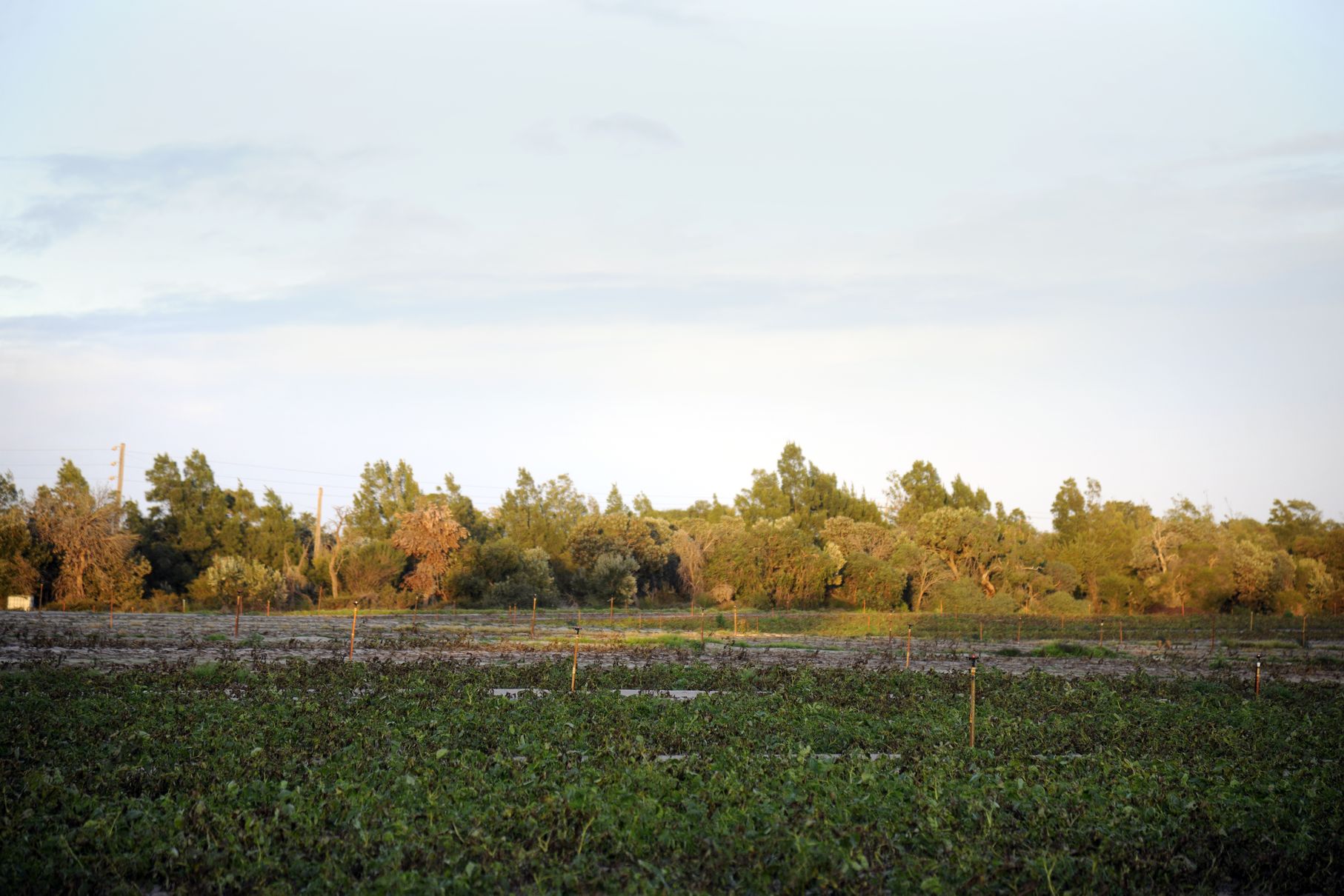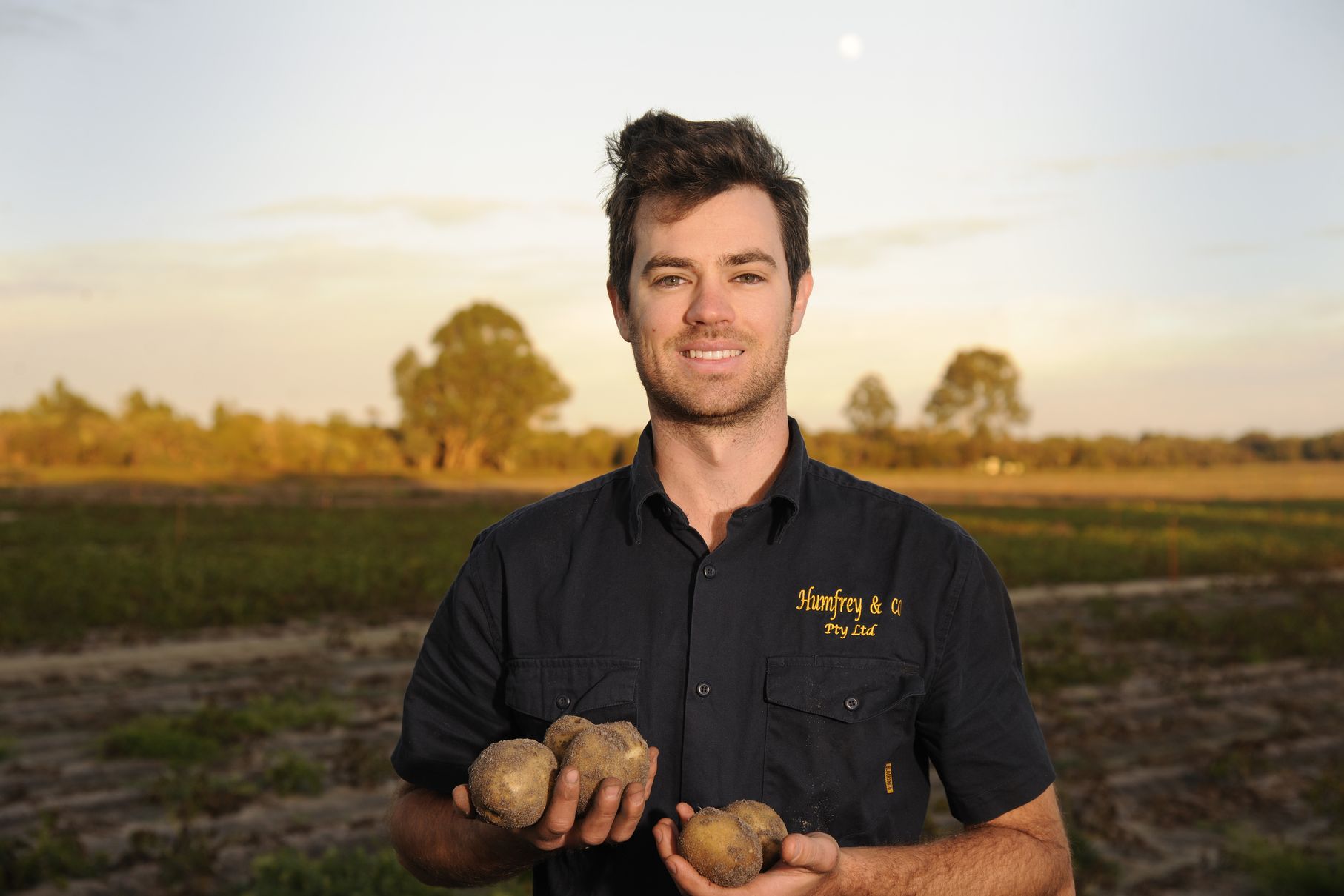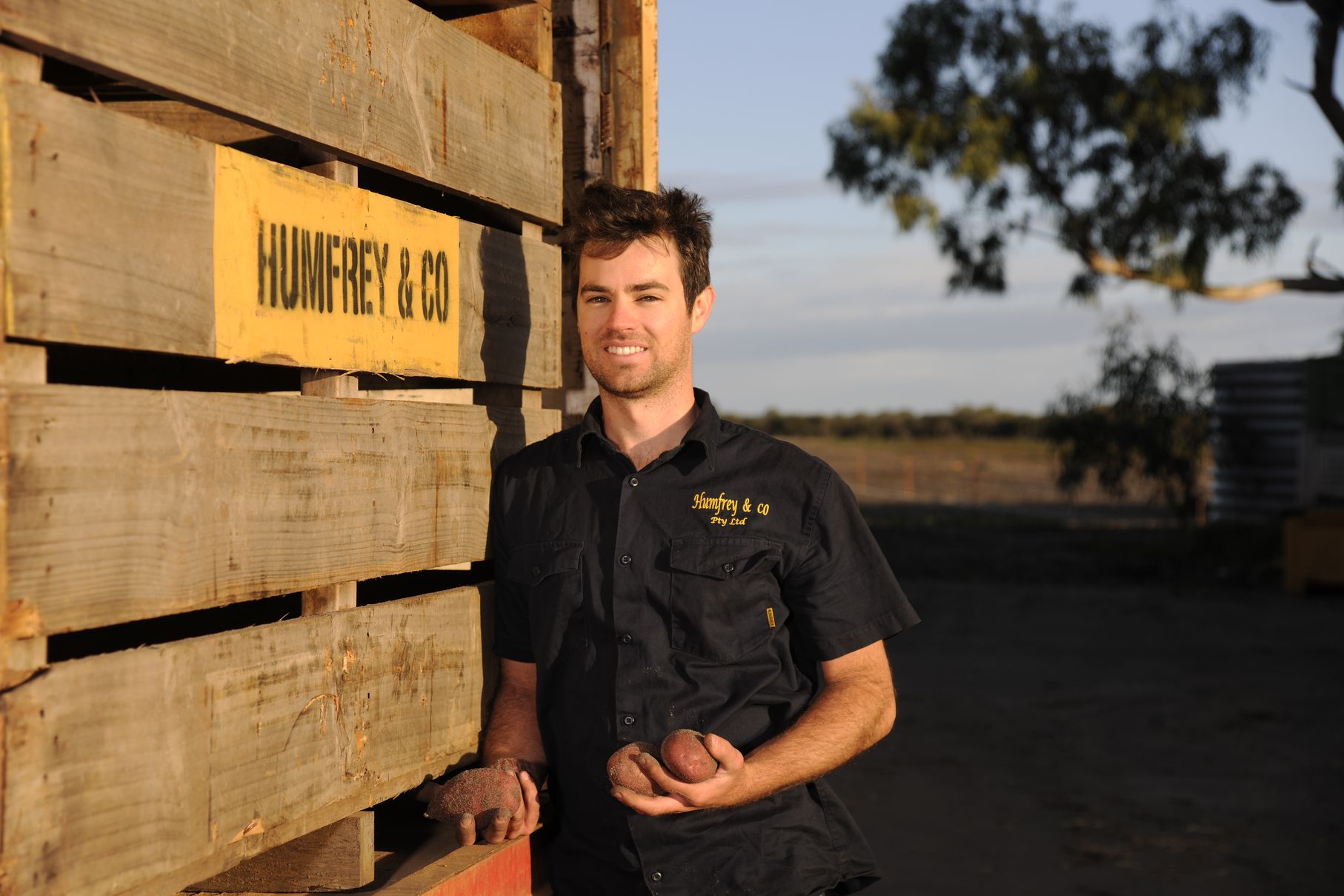VegWHS Training Resources
17 July 2017Monitoring psyllids and psyllid predators in Australian potato crops
11 August 2017Greg Humfrey is a 29-year-old grower from Humfrey & Co Pty Ltd in Gingin, Western Australia. We profiled him in the August/September 2017 edition of Potatoes Australia magazine.
Fast facts
Name: Greg Humfrey
Location: Gingin, WA
Works: Humfrey & Co Pty Ltd
Grows: Potatoes
How did you first become involved in the vegetable industry?
I grew up on the farm so I have always been around the industry, and potatoes was the main line Dad was growing when I started so that’s what got me involved.
What does your role in the business involve, and what are your responsibilities?
I look after one of our farms so everything from planning, planting areas, seed volumes, fertilising, spraying, irrigation and all the usual farm jobs.
What do you enjoy most about working in the potato industry and how do you maintain your enthusiasm?
It’s always changing, and there is never one season the same. We always try to improve our techniques and supply a better product.

What are the biggest challenges you face working in the industry, and how do you overcome them?
We have a constant increase in our input costs and constant downward pressure on our return for our product. Trying to produce the best quality at the highest yield for the least inputs is the only way to try and keep up.
In Western Australia, we have had a recent deregulation of our industry which has been an adjustment for every grower, along with unfavourable decisions by the state government and also the detection of tomato-potato psyllid. This has been a massive issue, with product not being able the leave the state as freely as before.
Where do you receive your on-farm practice advice and information from?
I am lucky to be around my Dad who has been growing potatoes for close to 30 years.
Advice from anywhere in the industry is good, then it’s up to us to relate it back to our conditions and make our own decisions.
"There is rarely a simple, boring day – it’s always changing and when you can work through all the scenarios, it’s a good achievement."
In your opinion, what areas of research are important to the potato industry and your business?
The more information we have on anything, the better chance we (as an industry) have. There’s constant variety research which is good. I think marketing research is important to keep the public aware and realise they are a healthy product.
What new innovations, research and/or practices has your business implemented recently?
We have been trying green manure crops and also high quality compost, as opposed to manure. We will see what comes from that.
Where do you see opportunities for growth in the Australian potato industry?
Maybe developing ready-to-cook packaged potatoes, since people are becoming time-poor.

Where do you see yourself in five years?
There has been a lot of change within the potato industry in Western Australia recently and hopefully in five years’ time, we are still growing potatoes at a viable level and improving our business.
What is your vision of the Australian potato industry in the future?
Hopefully it can gain an increase in consumption and have the consumers become more in touch with their locally-grown product. Australia produces such a high level of produce and it needs to be rewarded.
How do you think more young people could be encouraged to study and take up jobs in the potato industry?
I think trying to keep people within the industry is a good start. If you have an opportunity on the farm or in the pack shed, the merchant side should be strongly looked at. There is rarely a simple, boring day – it’s always changing and when you can work through all the scenarios, it’s a good achievement.
This grower profile first appeared in the leading magazine for the Australian potato industry, Potatoes Australia. If you’d like to subscribe to receive a new edition of Potatoes Australia in your mailbox every two months, use our online subscription form!
Photo credit: Chris Kershaw

